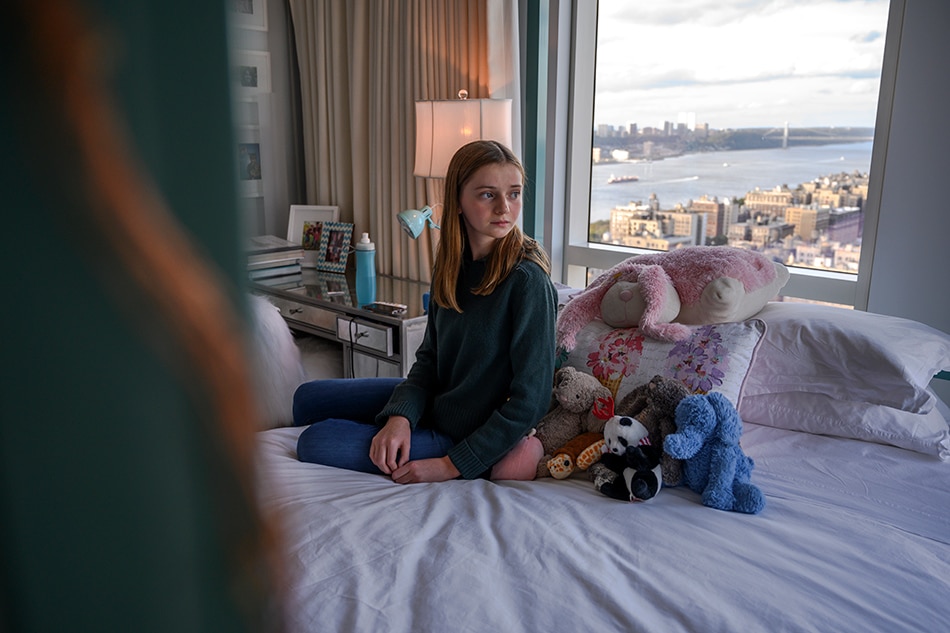
The following is a summary of some of the latest scientific studies on the new coronavirus and attempts to find treatments and vaccines for COVID-19, the disease caused by the virus.
Experts do not recommend using antibody drugs with COVID-19 for children
As of now, antibody therapies to COVID-19 should not be used to treat infections with the novel coronavirus in children or adolescents, “including those … at high risk of progression to hospitalization or serious illness,” said an expert panel. of 29 hospitals in North America who reviewed the available evidence.
The antibody drugs – bamlanivimab from Eli Lilly and Co and the combination of casirivimab plus imdevimab from Regeneron Pharmaceuticals Inc – were approved by the U.S. Food and Drug Administration in November for emergency use in certain groups of adolescents and adults with mild to moderate COVID -19.
But in an article published Sunday in the Journal of the Pediatric Infectious Diseases Society, the panel of experts said, “The course of COVID-19 in children and adolescents is typically mild and there is no high-quality evidence to support high-risk groups. there is no evidence for the safety and efficacy of monoclonal antibody therapy for the treatment of COVID-19 in children or adolescents, there is limited evidence of modest benefit in adults and evidence of potential harm. “
Disinfection during pandemic endangers asthma patients
Increased cleansing by people with asthma during the pandemic could trigger flares of their disease, a new report suggests. Researchers who surveyed 795 American adults with asthma between May and September found that the percentage who disinfected surfaces with bleach at least five times a week increased by 155% after the pandemic started.
The use of disinfectant wipes, sprays and other liquids also increased, the researchers reported in the Journal of Allergy & Clinical Immunology: In Practice.
After taking into account different behaviors and risk factors, a higher likelihood of uncontrolled asthma was associated with increased household use of disinfectant wipes, disinfectant sprays, bleach and water solutions, and other disinfectant liquids.
The study does not prove that an increased frequency of disinfection caused uncontrolled asthma. Still, the authors say people with asthma need safer cleaning options.
The U.S. Centers for Disease Control and Prevention advises asthma patients to ask someone else to clean and disinfect surfaces and stay in another room if using detergents or disinfectants, and immediately afterward.
It also said soap and water can be sufficient for surfaces and objects that are rarely touched.
News reports paint an all too rosy picture of blood treatment
News reports of critically ill COVID-19 patients treated with a final emergency procedure known as extracorporeal membrane oxygenation, or ECMO, may paint an unrealistic picture of the results, a study suggests.
During ECMO, blood is pumped outside the body through a machine that removes carbon dioxide and adds oxygen before returning the blood to the body. In a review of media reports on ECMO treatment of COVID-19, doctors found that 92% of patients in the stories survived, while mean survival rates after ECMO in large studies ranged from 53% in children to 63% in young and middle-aged age. elderly adults.
Patients undergoing ECMO treatment “are still at significant risk” of complications and death, but most news reports from COVID-19 patients treated with ECMO did not address these risks, the researchers said in JAMA Internal Monday. Medicine.
They say acknowledging the exaggerated benefit suggested by media reports, doctors, patients and families in intensive care units can help have more realistic discussions about prognosis after ECMO.
ANC, COVID-19 Science, COVID-19 Antibody Drugs, COVID-19 Children, Disinfection, Asthma, COVID-19, Coronavirus
